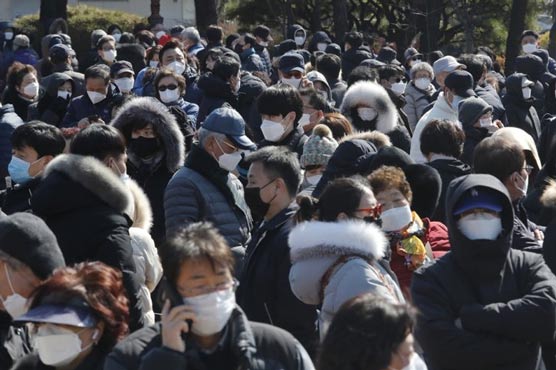Coronavirus 'highly sensitive' to high temperatures but summer won't kill it

Pathogen appears to spread fastest at 8.72 degrees Celsius
(Web Desk) - The virus that causes Covid-19 may have a temperature sweet spot at which it spreads fastest, a new study has suggested, but experts say people should avoid falling into the trap of thinking it will react to seasonal changes in exactly the same way as other pathogens, like those that cause the common cold or influenza.
Pathogen appears to spread fastest at 8.72 degrees Celsius, so countries in colder climates should ‘adopt the strictest control measures’, according to researchers but head of WHO’s health emergencies programme says it is ‘a false hope’ to think Covid-19 will just disappear like the flu.
A study by researchers to determine how the spread of the new coronavirus might be affected by changes in season and temperature suggested heat had a significant role to play in how the virus behaves.
“Temperature could significantly change Covid-19 transmission,” it said. “And there might be a best temperature for viral transmission.”
The “virus is highly sensitive to high temperature”, which could prevent it from spreading in warmer countries, while the opposite appeared to be true in colder climes, the study said.
As a result, it suggested that “countries and regions with a lower temperature adopt the strictest control measures”.
Many national governments and health authorities are banking on the coronavirus losing some of its potency as the weather warms up, as is generally the case with similar viruses that cause the common cold and influenza.
However, a separate study by a group of researchers including epidemiologist Marc Lipsitch from Harvard’s T.H. Chan School of Public Health, found that sustained transmission of the coronavirus and the rapid growth in infections was possible in a range of humidity conditions – from cold and dry provinces in China to tropical locations, such as the Guangxi Zhuang autonomous region in the far south of the country and Singapore.
Mike Ryan, executive director of the World Health Organisation’s health emergencies programme, also urged people not to assume the epidemic would automatically subside in the summer.
“We have to assume the virus will continue to have the capacity to spread,” he said.
“It’s a false hope to say, yes, it will disappear like the flu … we can’t make that assumption. And there is no evidence.”

